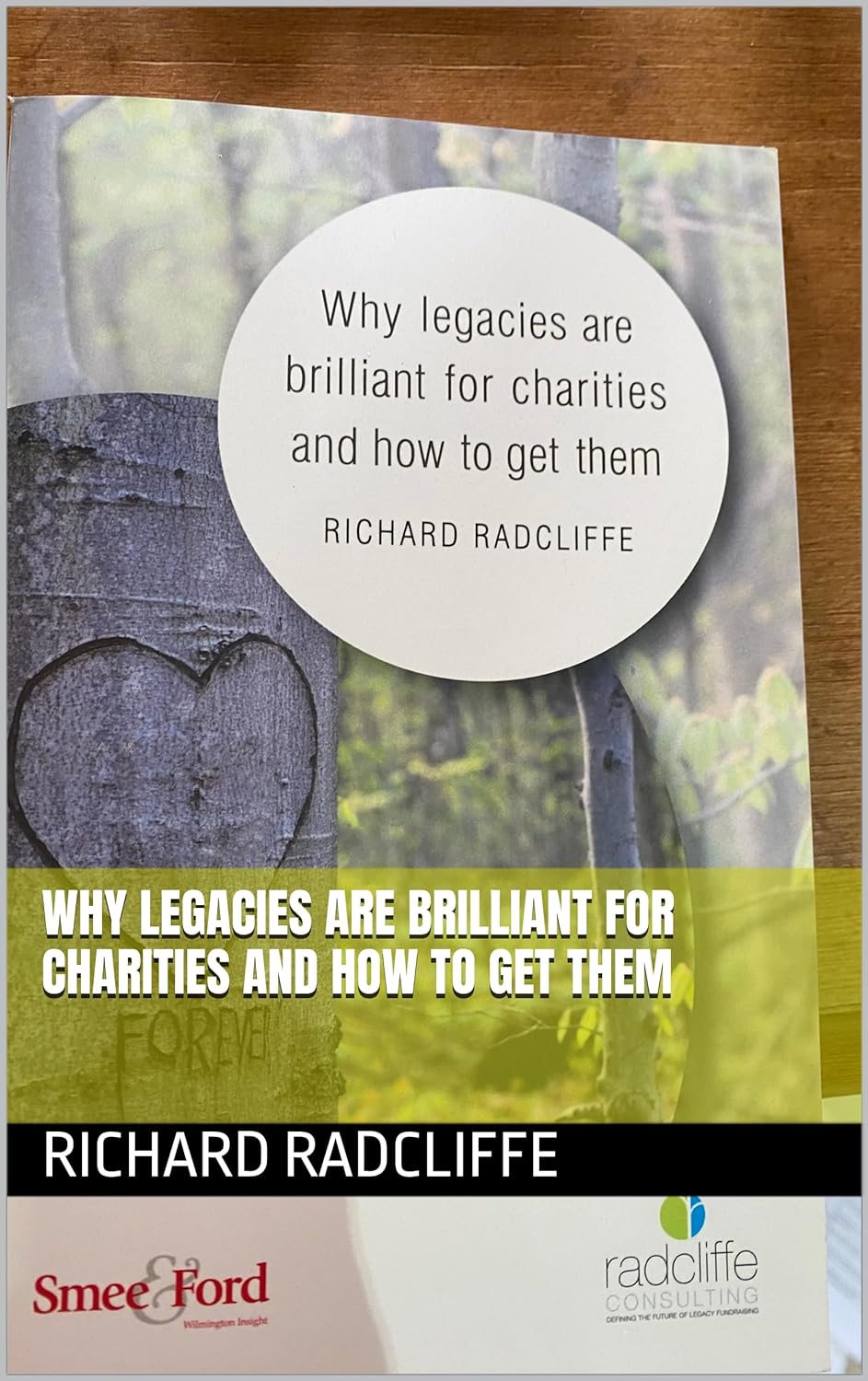- Home
- About Us
- The Team / Contact Us
- Books and Resources
- Privacy Policy
- Nonprofit Employer of Choice Award

 Here is a really bad conversation:
Here is a really bad conversation:
I am so sorry for bringing the subject up, and I know you might not want not give this way, and I know it is none of my business and they sound deathly and big and yes I know you have a family, but would you give us a legacy?
This is not an embarrassing subject. No apology should ever be given. The words “death,” “dying,” and “the end of your life” should never be used, but perhaps some people might giggle at “are you dying to support our charity in your Will?” Some certainly laugh out loud at “pay as you go” – but for goodness sake know your audience.
Let’s get one fact out in the open now. A legacy or gift in a Will is just one way of giving – that is all it is. But that is not how it is usually perceived. Recently a man in one of my focus groups made a call to his solicitor after the group and, bingo, a Will was in progress. He had been meaning to do it for 30 years.
A gift in a Will is unlikely to suit an 18-year-old. If you want to grow your legacy income while employed by your current charity – or within a realistic time frame – then you are addressing older people (whatever that means).
Who are you communicating to?
Or, as older people would prefer: With whom are you communicating?
Currently there are over 320,000 people in the world aged 100+ and it is due to be over 1 million by 2050. A third of babies born now are expected to live to over 100. Wow! (That is a muffin choker!)
“Feeling old” is a matter of attitude and health. Currently in my early sixties I do not feel old! But it is certainly a time that I am thinking about my Will more frequently. Older generations think differently than younger people. Older people have different priorities and use different language than younger people. How many times have I heard donors explode with anger when being asked to “download” information? I hear it incessantly in focus groups.
Older people have different values, and are less flexible, than younger people. Older generations have less trust in charities than younger people. This is often typified by the spontaneous nature of young people who just want to take part in a fun event run by a charity. The older we become the more cynical we become and the more we plan our lives – and as we grow old, we tend to look back rather than forward, with nostalgia increasingly playing an important part in our happiness.
It makes us sound like a bloody miserable bunch of narrow-minded grumpy old farts – which of course is always the case! Because the newest generation of legacy givers – baby boomers – are intelligent, thinking, positive, broad minded, and incredibly financially savvy. (But I still meet old females in focus groups who have only recently got their first cheque book after the death of their husband).
So, what is the profile of your primary prospects?
• Active Facebook grandparents making the most fun out of their retirement and who love their young family members, regardless of their different lifestyles?
• “Grumpies” who use no technology and complain the whole time about the young generation?
You really cannot use the same language for both groups.
This produces a fascinating dilemma which we are going to cover: how to segment when populations, generations, genders, and family age groups are becoming so mixed. But when talking and writing about legacies there are massive integration opportunities which should be used to drip feed the legacy message.
This excerpt is from Richard Radcliffe’s book, “Why legacies are brilliant for charities and how to get them.”
Richard has been helping charities grow legacy income globally for over 35 years and has no plans to stop yet! He has just updated his Will and becomes more passionate and forthright as years progress.